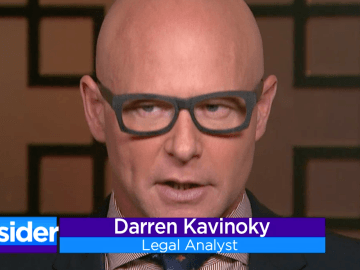 By Contributor Nicole Hanratty
By Contributor Nicole Hanratty
April 4, 2016–Los Angeles, California–Ever ponder that popular party game question, “Would you rather post a naked photo of yourself on the Internet or your Google search history?” What would we learn about you if we could see inside your Google search?
Just like Santa Clause, data miners know when you are sleeping–in fact some apps like Fitbit One can track how well you sleep–and they know what you’ve been up to… Remember in 2012 when Target knew before a Dad that his teenage daughter was pregnant?
There is virtually nothing you can do with a smart device that doesn’t track you, find you, tag you, monitor you and draw conclusions from your usage. Some would say the tracking itself is criminal but as consumers, more often than not, we click “Agree” and “Consent” without ever reading the fine print.
What benefits are there to online search histories? The data collected can make our lives easier. It can suggest recipes we might like to make, it can show us news we may find interesting, or it can lead to a pop up ad appearing on our screen when that pair of shoes or new appliance we’ve been Google search obsessing over, finally go on sale.
But keep in mind, it’s not just the good guys being watched, criminals are being tracked as well. It gets more difficult for criminals to plot, hide and run in today’s increasingly smart world and intelligence producing Internet of Things, which includes anything embedded with sensors or that can be controlled wirelessly including thermostats, cameras, cars, appliances, software and electronics.
Ever wonder if what you type into the Google search bar can constitute a crime? Lee Rowland, (Senior Staff Attorney, ACLU Speech, Privacy, and Technology Project), wrote an article on this exact topic for the ACLU.org blog. Online searches can be a murky area of law. Is the search a fantasy, a thought crime, or are real actions intended by the search?
Rowland’s article reviews the case of Gilberto Valle. According to Rowland’s article, “Gilberto Valle typed many things into his Google search bar. Where to buy the world’s largest baking dish? How to properly tie a woman to a rotating life-size barbeque spit? “How to chloroform a girl”?.” [Rowland, Lee. May 13, 2015. ACLU.org When Does Your Google Search Become a Crime? Retrieved from https://www.aclu.org/blog/speak-freely/when-does-your-google-search-become-crime
Valle’s Google search history dubbed as a “thought crime conviction” was overturned. On July 2, 2014, Daniel Engber reported for Slate.com, “In March 2013, the former New York City police officer was convicted of conspiring to kidnap, cook, and devour his wife, as well as several other women, mostly on the basis of his extensive and disturbing chats on a website called DarkFetishNet. Late Monday night, the judge in that case, Paul Gardephe, overturned the jury’s verdict and set Valle loose.” [See more on Slate.com via Daniel Engber. July 2, 2014. The Cannibal Cop goes free. But what about the Murderous Mechanic and Loathsome Librarian? Retrieved from http://www.slate.com/articles/news_and_politics/crime/2014/07/the_cannibal_cop_gilberto_valle_goes_free_what_about_michael_van_hise_and.html].
Wondering if Valle was deterred from using the Internet again after that brush with the law? Jessica Glenza reported in January 2015 for TheGaurdian.com that Valle joined Match.com. States Glenza, “The officer, Gilberto Valle, reportedly created a Match.com profile and was looking for a ‘non-judgmental’ woman who is ‘a little kinky’ – until the dating service removed the profile on Wednesday.” [Jessica Glenza. January 22, 2015. ‘Cannibal cop’ who described eating women is back on the dating scene. Retrieved via http://www.theguardian.com/us-news/2015/jan/22/cannibal-cop-eating-women-dating.]
In the Casey Anthony trial, the Google search history was reportedly overlooked. CBSNews.com reported on November 26, 2012, “Casey Anthony detectives overlooked Google search for “fool-proof” suffocation methods, sheriff says.” [Read the article via CBS.com here: http://www.cbsnews.com/news/casey-anthony-detectives-overlooked-google-search-for-fool-proof-suffocation-methods-sheriff-says/]
Thinking of deleting your Google search history? Apparently you can be prosecuted for that as well, as we have learned in the aftermath of the Boston Marathon bombings. On June 2, 2015, Juliana DeVries wrote an article for TheNation.com titled, “You Can Be Prosecuted for Clearing Your Browser History.” [Retrieved from http://www.thenation.com/article/you-can-be-prosecuted-clearing-your-browser-history/.] Her article references the case of Khairullozhori Matanov who reportedly cleared his browser history after speaking with investigators about his interactions with Tamerlan and Dhzokhar Tsarnaev. DeVries reports, “Federal prosecutors charged Matanov for destroying records under the Sarbanes-Oxley Act, a law enacted by Congress in the wake of the Enron scandal.” The Feds, according to the DeVries article, “never alleged that Matanov was involved in the bombings or that he knew about them beforehand, but they charged him with four counts of obstruction of justice.”
Interested in switching over to a search engine that swears it doesn’t track you? Check out DuckDuckGo https://duckduckgo.com/.
This article contains no legal advise. If you are looking for legal advise, call 1-800-NO-Cuffs or visit NoCuffs.com.
- #JourneyAcrossAmerica Update - May 10, 2017
- CNN Interview for my #RunAcrossAmerica - April 21, 2017
- #WhatsMyWin Training and Interview for my #RunAcrossAmerica - April 21, 2017



 Darren is an accomplished TV personality, attorney, interventionist, keynote speaker, and 'misbehavior expert' who appears constantly on countless TV and radio shows.
Darren is an accomplished TV personality, attorney, interventionist, keynote speaker, and 'misbehavior expert' who appears constantly on countless TV and radio shows.